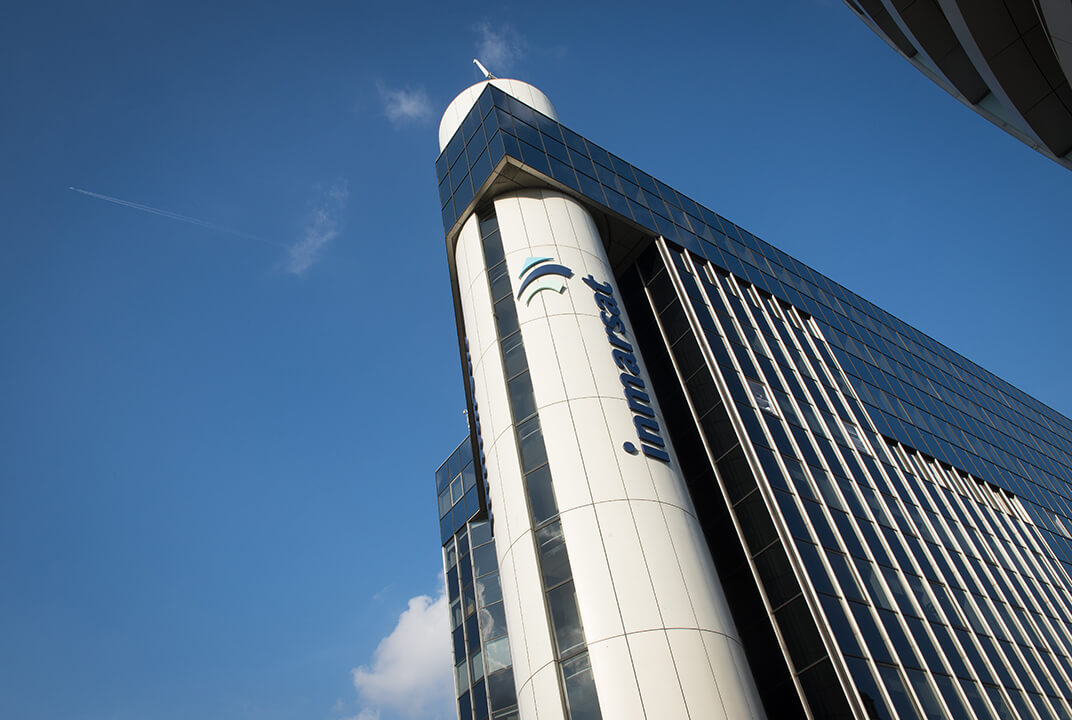Insight | Securing Sustainable Space
Securing Sustainable Space
null
As the aerospace industry gathers at Farnborough International Airshow after a four-year absence due to the pandemic, Inmarsat CEO Rajeev Suri explains the importance of addressing the sustainability of space both here on Earth and in orbit.
“Houston, we’ve had a problem,” is one of the most famous quotes in human history. Often misquoted, Captain Jim Lovell relayed to Mission Control that Apollo XIII had run into an emergency. In the 1960s and 1970s, during the space race, people were glued to their televisions and newspapers, especially during the Apollo missions and their Moon landings, as well as that fateful mission in 1970 when the world held its breath yearning for the safe return of Lovell, Jack Swigert and Fred Haise.
As the aerospace industry has its regular ‘family reunion’ in the United Kingdom at Farnborough, we rely on the benefits of space more than ever before, with even more to come on the near horizon. Yet never has this been taken for granted or misunderstood more.
Today the whole industry has a problem.
Research published in late June by Inmarsat demonstrates that the Apollo shine has worn off the space sector. At best people are unaware of the benefits they derive from space, at worst they are terrified. The survey, covering 20,000 people in 11 countries, found that one in three globally are excited about space, with one in nine terrified and one in five nervous. Fully 97 per cent see space as a threat, with space junk and climate change their main concerns.
Yet, if we flicked the off switch on space, people worldwide would notice immediately. Financial, transport and healthcare systems depend on precise timing from global positioning satellites. Trade relies on safety systems onboard aircraft and ships to take the goods we need from manufacturer to retailer. Millions of people worldwide enjoy the unique and varied benefits from the internet solely thanks to satellites. Plus, when disaster strikes, those same satellites provide lifesaving communications when all other forms of doing so have been eliminated.
Therefore, as leaders, whether in government or industry, we all have a job to do. Firstly, we need to showcase the benefits that people receive worldwide, daily, thanks to the current space industry, as well as demonstrate what further benefits are to come. Monitoring and mitigating climate change, more carbon efficient travel routes or flying taxis will not be delivered without satellites, for example.
Secondly, as illustrated clearly by the survey, we need to act, and be seen to be acting, as we address the sustainability of space both here on Earth and in orbit.
Inmarsat has published plans to do so recently. The UK Government has done so too. We are now working hard to ensure others join this vital work. Securing the public’s support ensures an ongoing licence to operate for the space sector. It needs to do so sustainably both to retain this support as well as to secure the orbits above Earth to be available to deliver the long-term benefits we will all enjoy.
A huge increase in commercial satellite launches will see tens of thousands of satellites launched in the next 10 years. A ‘Wild West’ space race without effective regulation risks a growing crisis of debris in space, adding to the existing threat from 400 redundant satellites and a million pieces of debris.
Inmarsat believes that there are three main areas for action on space sustainability:
- To address the growing risk of catastrophic incidents in space stemming from space debris;
- To enhance understanding and actions to address environmental hazards in space, and acknowledge their potential impact on climate change; and
- To regulate and curb predatory practices carried out by some commercial and governmental satellite operators.
Inmarsat wishes to see a safe and sustainable commercial space sector, which rewards responsible satellite programmes by lowering the costs of launch licenses and insurance for sustainable satellites and space missions. We want nations, international bodies and companies to join us.
Together we believe that industry, regulators and governments need to work together to ensure the economic and environmental sustainability of the space sector. The entire world depends on them doing so, quickly.
About the author
Rajeev was appointed as Inmarsat’s Chief Executive Officer in March 2021. He joined Inmarsat from Nokia, where he was most recently President and Chief Executive Officer. From 2009 to 2014 Rajeev was Chief Executive Officer of Nokia Solutions and Networks. During his tenure as CEO, he transformed Nokia into a top two telecommunications infrastructure company, led the consolidation of the sector from ten to three major players, positioned Nokia as a leader in a world connected by 5G and shaped by increasing digitalisation and automation.
Rajeev has lived and worked in the Middle East, Asia, Africa and Europe. In March 2021, he was reappointed as a Commissioner of the United Nations Broadband Commission. Rajeev was a member of the Chinese Premier’s Global CEO Council from 2014 to 2020, a recipient of China’s Marco Polo award; the highest honour awarded to an international business person from the Chinese government. Rajeev is an engineering graduate in Electronics and Communications and has been awarded an Honorary Doctorate by Manipal University.


